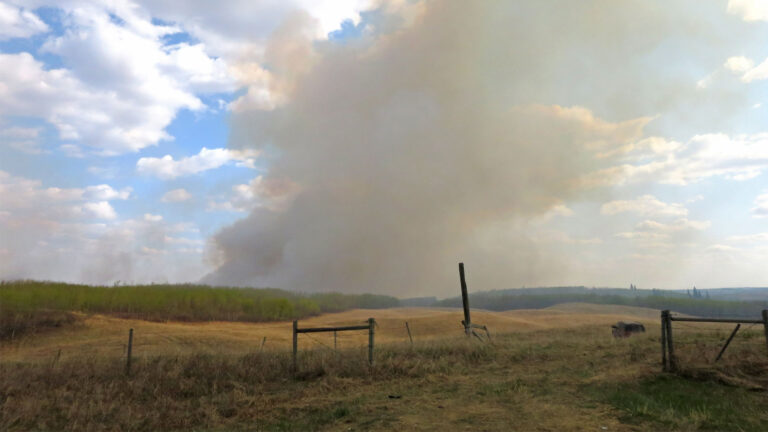
Every spring and summer, Albertans see the impacts of wildfires across the province. An unexpected natural disaster can have significant impacts on pharmacy operations, from necessitating a temporary closure to bringing an influx of displaced patients.
It’s up to the licensee to consider all of the “what if” scenarios that may impact a pharmacy. Having a temporary closure plan in place and being prepared to support displaced patients are both essential proactive steps for every pharmacy.
Preparing for a temporary closure
From the absence of a licensee, to renovations, to staff sickness, to wildfires—there are a number of scenarios that may require a temporary closure.
It’s important for all licensees to have a plan in place in case a wildfire or another circumstance causes them to temporarily close the pharmacy. The Standards for the Operation of Licensed Pharmacies require the licensee to develop a documented plan to ensure continuity of patient care in the event of planned or unplanned pharmacy closures or a loss of records or access to records.
ACP has developed the pharmacy closure plan as a tool to help licensees prepare for instances when a pharmacy may need to close. This tool will help plan for how patients will be notified, how they can obtain their prescriptions and access their care records, how these records will be transferred and kept secure, and more.
Preparing to help patients in an emergency
If a natural disaster or other circumstance displaces patients but does not require the temporary closure of your pharmacy, your pharmacy team may need to be prepared to provide care for these temporarily displaced patients. In this scenario, your pharmacy team will be required to
- Form a professional relationship with the patient and identify and assess their current health needs.
- When assessing the patient, complete a best possible medication history and health history. This should include a review of Netcare.
Remember, pharmacists have multiple tools at their disposal for providing care to patients:
- Transfer prescriptions. Collaborate with the patient’s regular pharmacy and healthcare providers to transfer or obtain required prescriptions.
- Prescribe or adapt prescriptions for the patient. In these circumstances, review the Standards of Practice for Pharmacists and Pharmacy Technicians (SPPPT) for further direction.
- Provide virtual care if appropriate. If the patient is not able to attend the pharmacy in person, care may be provided virtually in accordance with the Standards of Practice for Virtual Care. Under these circumstances, regulated members must consider the limitations of the enabling technology used and determine what professional services they are able to provide.
- As the duration of an evacuation order may be unknown, consider prescribing patients a reasonable amount of medication to ensure continuity of care until they are able to access their medication supply or follow up with their regular healthcare providers. This must be based on your assessment of the patient.
- Collaborate with the patient’s healthcare providers as required and communicate any prescribing decisions as soon as possible. Remember to complete and share any necessary documentation.
- Exemptions for prescribing and providing controlled substances issued by Health Canada under Section 56(1) of the Controlled Drugs and Substances Act (CDSA) allow pharmacists to
- extend or renew existing prescriptions for drugs regulated under the Controlled Drugs and Substances Act (CDSA),
- transfer prescriptions for drugs regulated under the CDSA to other pharmacies,
- accept verbal orders for all controlled substances regulated under the CDSA, and
- arrange for delivery of prescriptions of controlled substances to patients’ homes or other locations where they may be.
Refer to ACP’s Controlled drugs and substances exemption guidelines for more information.
While evacuations have been limited so far this year, there is potential for further wildfire impacts in Alberta in the months ahead. We recognize the burdens that these circumstances cause—the limited time you have to address all the issues you face, the challenges of looking after new patients with limited information, and the limits to your physical and emotional energy. Remember to do your best to look after yourself and those working with you whenever a natural disaster occurs.




